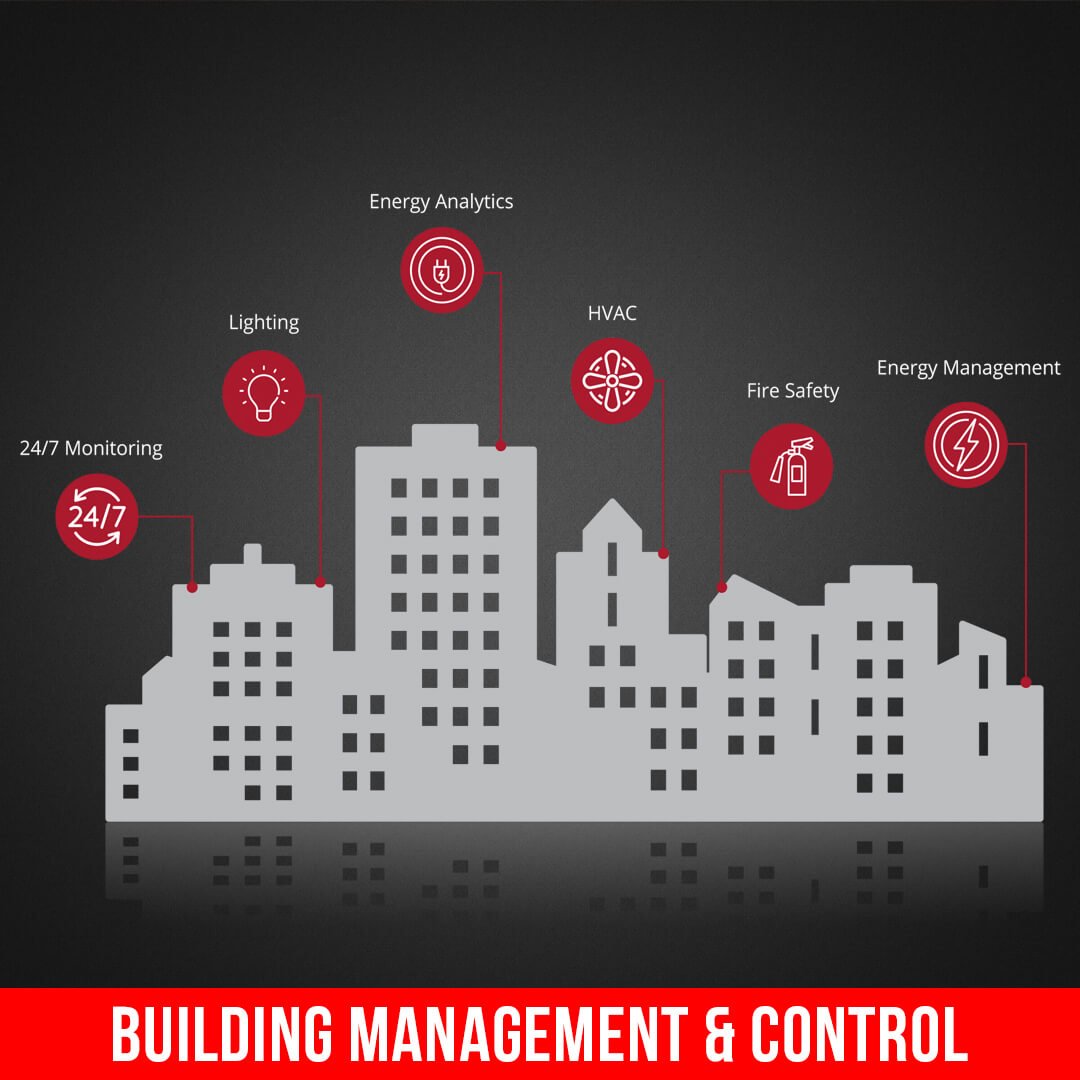
Building Management AND Control
What is a Building Management and Control System?
A building management and control system (BMCS) manages and monitors the internal environmental conditions of commercial buildings, Organizations, Establishments.
BMCS consists of several digital controllers which communicate via a network infrastructure. It provides a report to a computer referred to as a head end, manager, or operator workstation.
Building Management System
The role of the operator workstation is to transmit functional parameters to the controls, such as setpoints and time schedules.
Conversely, the controllers can send operational information to the operator workstation like temperatures, alarms, and system performance information. The controllers are digital and work with embedded.
BMS in combination with wireless monitoring and management systems will provide a strong improvement over the current systems in use.

Smart Building Management System
- Field level
- System level
- Management level
BMCS and Essential Services :
The functionality of a BMCS stops the control of necessary systems such as power generators, building safety systems, and fire control or smoke management systems.
Damia Global Services is continuously developing innovative building management & control products to enable the installation of automation technologies along with energy-saving capacities to integrate various building systems on a single management platform.
We participate actively in the development of the BACnet Protocol. Our holistic approach to buildings and their systems has developed a comprehensive range of original BACnet products i.e. HVAC, lighting control, and access. At every level, these automated products are completely programmable and customizable to offer an accurate solution to any building. The combined use of DGS gateways, fully programmable controllers, and intuitive building operations software help to manage buildings easily and make them more energy-efficient.
Building Management System
The wide range of HVAC controllers delivers a top-to-the-bottom solution that covers all HVAC applications from extensive central plants down to zone terminal units and sensors.
Damia Global Services Pvt. Ltd. delivers a broad range of products for applications in building automation that depend exclusively on open and standardized communication protocols.
Our Room Controllers are based on IP that is revolutionary on their own. The high-quality L-VIS Touch Panels and the L-STAT Network Thermostats with touch control help to run room operation in a new dimension.
The L-INX Automation Servers are powerful, effective, programmable automation stations. LWEB-900 is a user-friendly building management system that constitutes the foundation for appropriately managing technical plants in a building.
With Damia Global Services support and technology evolution in building automation, intelligent/smart buildings can achieve optimal operation efficiency, convenience, and energy savings.

Components Of Building Management Systems (BMS):
The main components of a BMS and its basic functionalities are Boiler management: It maintains a constant temperature and switches boilers on/off at specific times.
HVAC— to maintain a specified temperature and humidity; control fans and dampers; control air handling units and fan coil units.
Lighting management—turn lights on/off according to a specified period. Electric power control and monitor core electrical and mechanical tools.
Heating—maintain schedule the system on and off.
Ventilation—modify based on occupancy management.
Security and keeping to access control surveillance and intrusion detection. The fire alarm system contains a smoke control system and active alarm locations.
Elevators—elevator video display
Plumbing and water monitoring—monitor/observe and notice hydraulic flows, open/close valves automatically; temperature deviations.
Many building management systems have additional quality and feature some can even be created specifically for the establishment itself. These types of systems use a variety of hardware and software to monitor and manage remote sensors, as well as software that permits to interact with the system.
The Benefits of Building Management Systems:
- It protects the most expensive equipment by ensuring it functions properly.
- It simplifies the management and makes it easy to access and manage any place of your building’s operations.
- It supports your building function through automatic scheduling and occupancy controls.
Some drawbacks of BMS are:
- Building management systems are expensive, in addition to high regular fees to keep them operational.
- BMS data won’t help you achieve maximum energy savings and operational efficiency.
- BMS systems don’t work collaboratively.